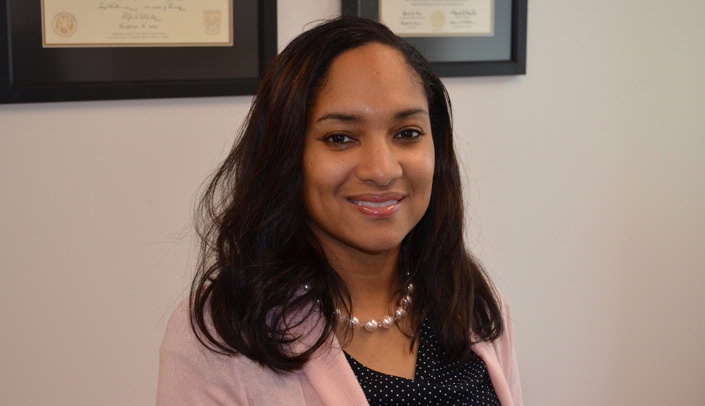Depressed or anxious?
There are apps for that.
But do they work?
One app’s creator is teaming with a group of investigators from UNMC to see if his app, TruReach, which uses cognitive behavior therapy principles, has a measurable impact on its users in a study that’s being funded by Blue Cross Blue Shield. The cognitive behavioral therapy model changes thoughts and behaviors to improve depression and anxiety.
Sheritta Strong, M.D., is the principal investigator on the study. She says the app, if effective, could provide an avenue to reach people in need of help.
“It is important to meet people where they are,” she said. “A lot of people are going to the internet or going to applications to improve their mental health.”
TruReach Creator Jeff Perron, a Ph.D. candidate from Canada, approached the UNMC team about analyzing the app’s effect.
“If we can find some clinical data to back it up and to use it as a treatment strategy to improve the mental health of patients, we thought it was a great idea,” said Dr. Strong, who is teaming on the study with Steve Wengel, M.D., professor and chair of the psychiatry department; Brigette Vaughan, a nurse practitioner in the psychiatry department; Jessica Koran, Ph.D., director of behavioral health in the family medicine department; and Perron.
“Often, it’s tough to get in to see a therapist, a psychologist and psychiatrist or even a family medicine doctor to help deal with the depression and anxiety,” Dr. Strong said. “If they have a cognitive behavior therapy application at their fingertips, then the goal is to hopefully improve depression and anxiety sooner than them having to wait months to see a provider.”
The study will examine subjects with milder, at most moderate, depression and anxiety.
“We’re not looking for individuals with severe mental health concerns, because this app may not apply to them,” Dr. Strong said.
While there are apps available that claim to assist with depression or anxiety, there is not a lot of data supporting the applications, she said. But an effective app offers intriguing possibilities.
“With efficacy, the app may decrease the number of doctor visits, possibly even decrease the amount of medication that a person has to take,” she said. “So utilization of services is another data point that we’ll be looking at, as well.”
The study will begin with a pilot project of 30 patients before widening, and the pilot project should be under way in the next few months.

Very excited for you and your team Dr. Strong. This will be great!
Wonderful! So many such apps, but we just don't know their efficacy. Will be very interesting to see what your study finds.